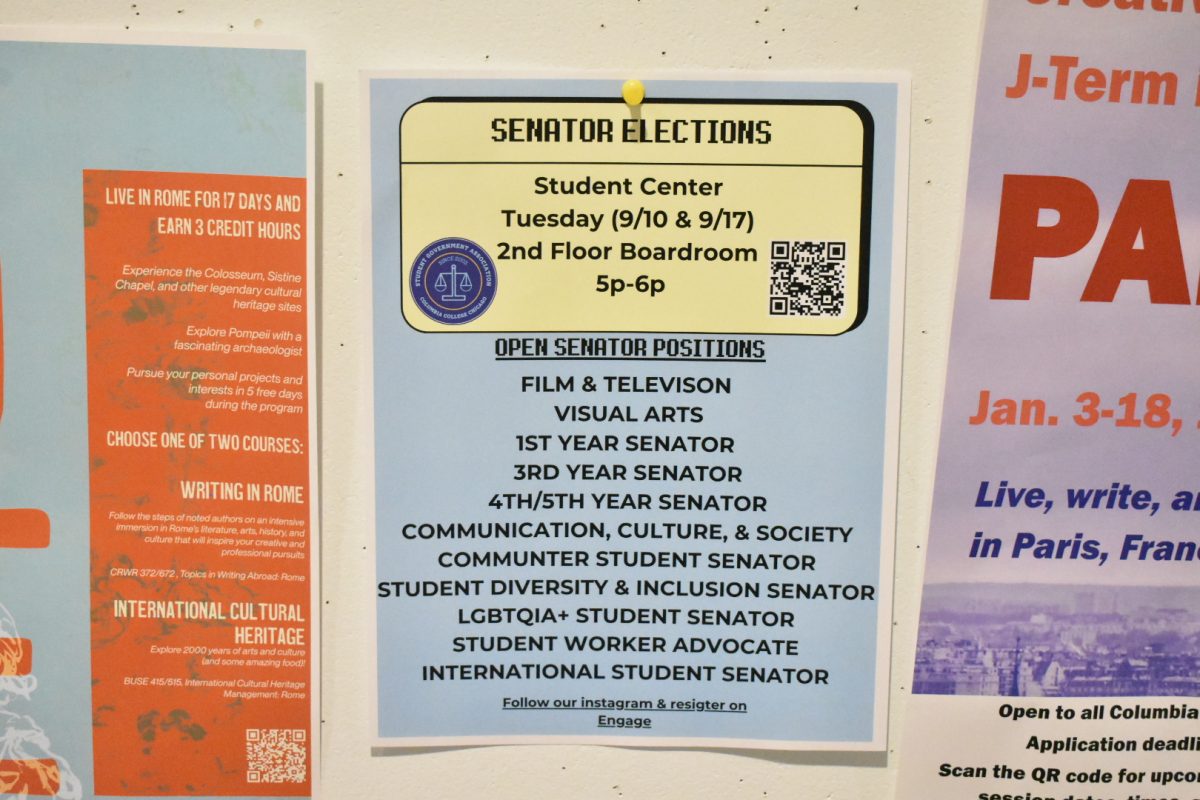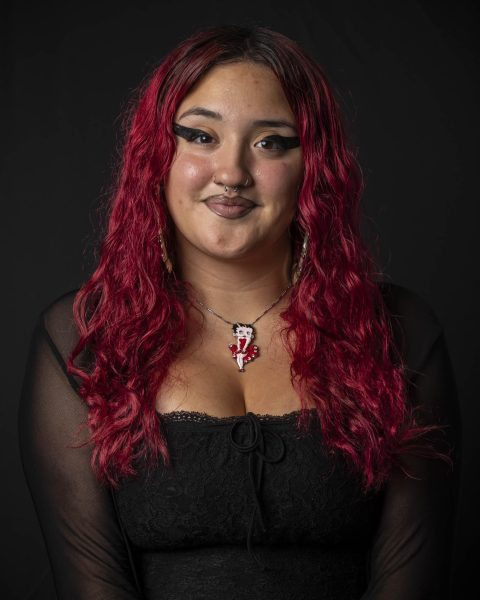The Student Government Association held its first round of senator elections on Tuesday, Sept. 10. Five students were elected, leaving eight positions open for another round of elections on Sept. 17 on the second floor of the student center from 5 to 6 p.m.
Three seats were open for academic senators: Film and Television, Visual Arts, and Communication and Culture.
Ten seats were open for community senator positions, representing first-year students, third-year students, fourth-year and fifth-year students, commuter students, on-campus students, LGBTQIA+ students, international students, honors students, student diversity and inclusion, and student workers.
Senate seats for Communication and Culture and Film and Television were filled. Only the honors, commuters, and on-campus senators were elected among the open community senator positions; these senators are more focused on communities on campus that are not part of the bigger schools. The remaining seats will be open for the second round of elections next week.
- Sophomore film and television major Morgan Lawson was elected as the Film and Television senator,
- Senior marketing and ASL-English interpretation major Sabrina Alejandre was elected as the Communication and Culture senator,
- First-year animation major Roland Cooper was elected as the commuter students senator,
- Sophomore film and television major Ryan Sanhamel was elected as the on-campus student senator and
- Sophomore fine arts major Michael Kowalkowski was elected as the honors student senator.
Student senators represent the needs of students in their specific school or community. In the fall, each senator hosts their school’s town hall and gathers information in different ways to host initiatives in the following semester. New senator elections are held at the start of each semester.
Lawson, the new Film and Television senator, said she decided to run for this position out of her love for her major.
“A few specific areas that I aim to focus on are chances for first-year film and television majors to be able to meet and make connections with one another,” she said.
Lawson previously served as the honors program senator for SGA.
“In my time at SGA, I have sought involvement in the school through the encouragement of showcasing student artwork in all forms, giving back to the community by coordinating our school’s second blood drive, and encouraging collaboration between student organizations and different majors,” she said.
Newly elected honors student senator Michael Kowalkowski also served as a student representative for the SGA last semester. He worked closely with the previous honors student senator, which is why he decided to run for the same position.
“I actually prepared to run for the visual arts senator position,” he said. “So when I found out honors was open, I decided to go that way because I feel more confident in just doing something with that.”
Kowalkowski hopes to advocate for more honors classes and encourage more students to visit the honors lounge. He wants to ensure that students in the honors community are using the resources provided for them.
As the college eliminated departments and introduced eight new schools, the SGA also had to make some changes to their senator positions due to the merging of some departments.
“So previously we had, I think it was 15 department senators,” SGA President Jenna Davis said. “Now, it’s eight, which represents the eight schools of the college, and that made our Senate a little bit smaller, which can look different.”
Davis hopes that this change could encourage more students to join the SGA by being a student representative, which is open for students who don’t have the time commitment of a senator.
“They can show up as often or as little as they want, and they come and voice their opinion, which, if someone can show up once a month, that’s awesome, but it’s really what the person makes of their position,” Davis said.
They can get involved with a senator and work with them on projects, and they can also just join the SGA weekly meetings and listen.
“Last year, we grew our student reps significantly, but this year, I think having senators, especially for, like, the communications department, there’s so many within [that school],” she said. “Having student reps voicing how their smaller department feels, will help encourage more people to join.”
Aside from running as a senator and joining as a student representative, students can also get involved with the SGA through the Student Affairs Committee, which will be hosted by the Student Representative to the Board of Trustees I’Ja Wright. The committee meetings will start in October and discuss very specific issues on campus.
Copy edited by Vanessa Orozco
Resumen en Español:
La Asociación de Gobierno Estudiantil (SGA) realizó su primera ronda de elecciones para senadores el martes, 10 de septiembre, eligiendo a cinco estudiantes. Ocho puestos siguen vacantes para una segunda elección el 17 de septiembre. Tres escaños académicos—Cine y Televisión, Artes Visuales y Comunicación y Cultura—estaban disponibles, junto con diez puestos comunitarios para representar a varios grupos estudiantiles.
Morgan Lawson, estudiante de segundo año de cine y televisión, fue elegida como senadora de Cine y Televisión, mientras que Sabrina Alejandre, estudiante de último año de marketing y Lenguaje por Señas Americana – Interpretación Inglés, fue elegida como senadora de Comunicación y Cultura. También se eligieron senadores para estudiantes que no residen en los dormitorios de la universidad, los que viven en el campus y estudiantes de honor. Los demás puestos se decidirán en la siguiente elección.
La SGA reestructuró sus puestos de senadores debido a la creación de las ocho nuevas escuelas en Columbia. La Presidenta de la SGA, Jenna Davis, espera que este cambio fomente una mayor participación estudiantil a través de roles menos exigentes en cuanto a tiempo, como los representantes estudiantiles.
Además, los estudiantes pueden unirse al Comité de Asuntos Estudiantiles, dirigido por I’Ja Wright, para abordar temas específicos del campus a partir de Octubre.
Resumen en Español por Doreen Abril Albuerne-Rodriguez
Resumen en Español copia editada por Manuel Nocera










